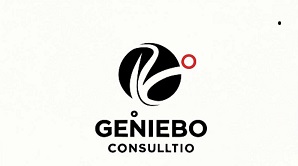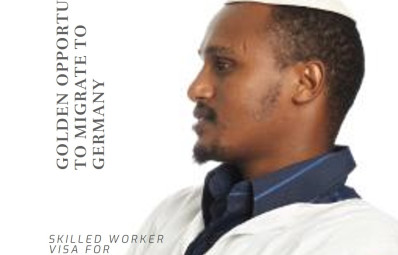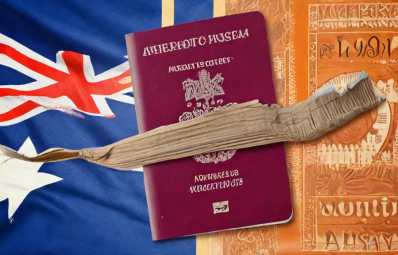Posted At: Feb 29, 2024 - 296 Views

Omnia Vocational College:
- Located in Espoo, Omnia offers vocational programs in various fields, including business, technology, and health care.
- Programs are taught in English, making them accessible to international students.
Business College Helsinki:
- Business College Helsinki provides vocational education in business-related fields.
- Students can learn practical skills relevant to business administration, marketing, and entrepreneurship.
Turku Vocational Institute (TAI), Peltola Campus:
- TAI offers vocational programs in Turku, a vibrant city on the southwest coast of Finland.
- Programs cover areas such as hospitality, tourism, and social services.
Tampere Region Vocational College (Tredu), Santalahdentie Agency:
- Tredu provides vocational education in Tampere, a city known for its innovation and technology.
- Programs include fields like engineering, health care, and information technology.
Suupohja Koulutuskuntayhtymä Vuoksi:
- Located in Imatra, this vocational institution offers programs in various sectors, including construction, automotive, and social services.
Tuition Fees and Work Opportunities:
- Compared to other countries, Finland’s vocational programs have affordable tuition fees (around EUR 4,500 per program).
- International students can work up to 30 hours per week at a wage of EUR 8-12 per hour, providing additional financial support during their studies1.Admission requirements for vocational programs in Finland can vary depending on the specific institution and program. However, here are some general guidelines:
Eligibility:
- You can apply for vocational education and training (VET) in Finland if you have completed secondary education equivalent to Finnish upper secondary school or have acquired relevant skills through other means.
- The education provider will assess whether your skills are sufficient to complete the qualification.
Application Process:
- Rolling Admissions: You can apply for VET flexibly throughout the year. Rolling admissions are suitable if you have an upper secondary qualification, a post-secondary degree, or competence acquired through work or previous studies.
- Joint Application System: The joint application system is primarily intended for those who are about to complete comprehensive school or have already completed it but not a vocational qualification, general upper secondary school syllabus, or post-secondary degree.
- Check the application instructions on the educational institutions’ websites for specific details.
Additional Requirements:
- Some programs may require additional documents such as an employment certificate, CV, and proof of language proficiency (English and/or Finnish).
- An admission interview or assessment may also be part of the process.
- Depending on the program, you may need to provide evidence of no past criminal record.
Language Proficiency:
- Depending on the language of instruction, you may need to demonstrate proficiency in English and/or Finnish. Language tests like IELTS, TOEFL, or YKI (Finnish Language Tests) may be required.
Specific Program Requirements:
- Each vocational program may have its own specific requirements related to prior knowledge, skills, or prerequisites. Check with the educational institution for program-specific details.
Finland offers a diverse range of vocational programs that cater to various fields and industries. These programs focus on practical skills and prepare students for specific careers. Here are some popular vocational programs in Finland:
Nursing: Nursing programs provide essential training for healthcare professionals. Students learn about patient care, medical procedures, and health promotion.
Information Technology (IT): IT programs cover topics like software development, network administration, cybersecurity, and database management. Finland has a strong IT industry, making this field highly relevant.
Hospitality Management: With Finland’s growing tourism industry, hospitality management programs are in demand. Students learn about hotel operations, event planning, and customer service.
Culinary Arts: Culinary programs focus on cooking techniques, food safety, and restaurant management. Finland’s culinary scene is diverse, and skilled chefs are always needed.
Mechanical Engineering: Mechanical engineering programs prepare students for roles in manufacturing, design, and maintenance. Finland has a strong engineering sector, especially in machinery and equipment.
Electrical Engineering: Electrical engineering programs cover electrical systems, automation, and renewable energy. Graduates can work in various industries, including electronics and power generation.
Carpentry: Carpentry programs teach woodworking skills, construction techniques, and building maintenance. Finland’s construction industry offers opportunities for carpenters.
Welding: Welding programs focus on metal joining techniques, safety procedures, and quality control. Welders are essential in construction, manufacturing, and shipbuilding.
These vocational programs are offered by different vocational schools in Finland. They provide practical training and often lead to high-paying jobs. If you’re interested in any of these fields, consider exploring Finland’s vocational education options! 🌟🇫🇮
Remember to explore the specific programs, admission requirements, and application deadlines for each school. Finland’s vocational education system emphasizes practical skills and can lead to rewarding career opportunities! 🌟🇫🇮






